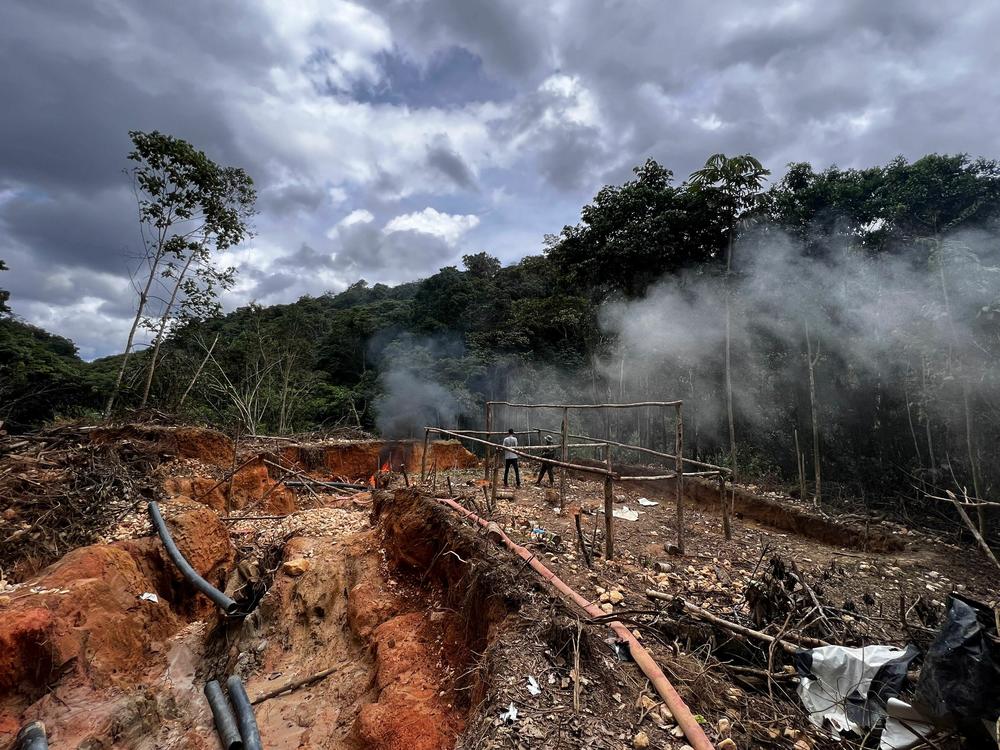Section Branding
Header Content
Brazilian leaders praise a 34% drop in the rate of deforestation in the Amazon
Primary Content
Brazil's national government announced last week that the rate of deforestation in the Amazon dropped about 34% in the first six months of this year compared to the same period last year.
The decrease coincided with the new administration of leftist president Luiz Inácio Lula da Silva, who took office in January and pledged to protect the rainforest and reverse ballooning deforestation.
Da Silva's ascendance follows the controversial tenure of far-right President Jair Bolsonaro, who lost his bid for another term and was later blocked from running for office again until 2030 for abuse of power during last year's election.
While president, Bolsonaro eliminated some of Brazil's environmental protections and encouraged agricultural production and mining in the Amazon.
Illegal deforestation is often caused by people taking land and razing it to sell for soybean farming and cattle grazing. A small minority of farmers is responsible for most of the destruction.
In 2021, Brazil recorded its highest annual rate of deforestation in 15 years, with some 5,100 square miles of rainforest lost.
Government officials say that is changing under da Silva.
"The effort to reverse the deforestation growth curve was successful," João Paulo Capobianco, the secretary of deforestation control, said at a press conference on Friday.
Environmental minister Marina Silva added that there would no longer be "complicity with criminality," and said an increase in inspections and embargoes also helped rein in the recent growth of deforestation across the Amazon.
Fines issued by the Brazilian Institute of Environment and Renewable Natural Resources increased by 116% in the first six months of this year, and embargoes on the use of illegally deforested areas grew by 111%, data showed.
Still, officials acknowledged that while deforestation has slowed, it has not stopped — from January to June this year, more than 1,000 square miles of forest was cleared. And they said the upcoming dry season may produce destructive wildfires that could further endanger the rainforest.
Copyright 2023 NPR. To see more, visit https://www.npr.org.

